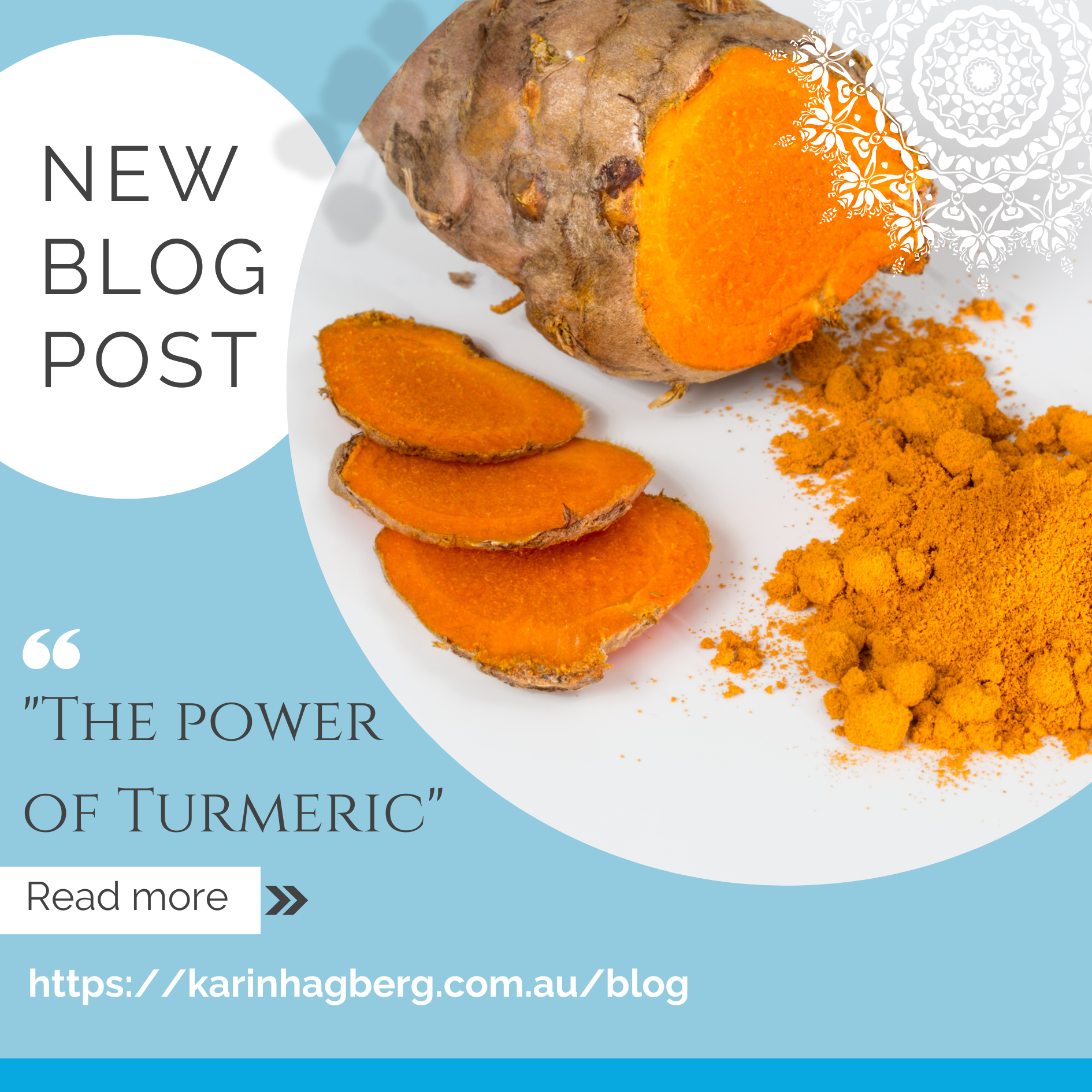
Have you heard of the spice Turmeric. It seems to be the herb that many people resort to know, particularly as people are starting to learn that is can be helpful to combat inflammation.
I started doing a little more research about Turmeric a while ago as I have had some issues with inflammation in my joints. I learnt that when combining fresh turmeric with oil and black pepper it increases the amount that the body absorbs - it increases what is called the bioavailability. I have taken turmeric supplements for a long time (very good quality) with little relief, so I started giving fresh turmeric a go with a little oil and black pepper essential oil from young living. I have found this a little hard to keep up doing and I still did not get profound result. Now I have found a better way.
What is Turmeric?
Turmeric is a yellow-colored spice derived from the root of the Curcuma longa plant, which belongs to the ginger family. It is commonly used as a culinary spice in many cuisines, particularly in Indian, Southeast Asian, and Middle Eastern cooking. Turmeric has been used for centuries in traditional medicine systems like Ayurveda and traditional Chinese medicine for its potential health benefits.
The key bioactive compound in turmeric is called curcumin, which is responsible for its vibrant color and many of its therapeutic properties. Curcumin has been the subject of extensive scientific research due to its potential anti-inflammatory, antioxidant, and anticancer effects. However, it's important to note that the bioavailability of curcumin is relatively low, meaning that it may not be efficiently absorbed and utilized by the body when consumed alone.
Turmeric and Curcumin are used for various purposes, including:
1. Anti-inflammatory and Pain Relief: Curcumin has been studied for its potential anti-inflammatory properties, which may help reduce inflammation in conditions such as arthritis, inflammatory bowel disease, and other inflammatory disorders. It is also used for its potential analgesic (pain-relieving) effects.
2. Antioxidant Support: Curcumin acts as a potent antioxidant, helping to neutralize harmful free radicals in the body. Antioxidants are important for combating oxidative stress, which is associated with various chronic diseases and aging.
3. Digestive Health: Turmeric is used to support digestive health by promoting healthy digestion, reducing bloating, and soothing gastrointestinal discomfort. It may also aid in the management of conditions like dyspepsia and irritable bowel syndrome (IBS).
4. Liver Health: Turmeric is believed to have hepatoprotective properties, helping to support liver health and detoxification processes. It may be used as a supportive therapy in liver diseases or as part of a liver cleanse.
5. Skin Health: Turmeric is used topically in skincare products for its potential anti-inflammatory and antioxidant effects. It may help with conditions like acne, eczema, and psoriasis, promoting healthy skin.
6. Cognitive Support: Curcumin has been investigated for its potential neuroprotective effects and its ability to cross the blood-brain barrier. It is being studied for its potential role in supporting cognitive function and reducing the risk of neurodegenerative diseases like Alzheimer's.

What is inflammation?
Inflammation is a natural protective response of the body's immune system to injury, infection, or irritation. It is a complex biological process involving various cells, chemicals, and molecular signals. The primary purpose of inflammation is to remove harmful stimuli, initiate the healing process, and restore tissue homeostasis. However, inflammation can also occur inappropriately or persistently, leading to chronic inflammation, which can contribute to the development and progression of certain diseases.
The causes of inflammation can vary depending on the specific situation, but common triggers include:
1. Infections: Bacterial, viral, fungal, or parasitic infections can activate the immune system and trigger an inflammatory response. Examples include respiratory infections, urinary tract infections, and skin infections.
2. Tissue Damage: Physical injury, trauma, burns, or surgical procedures can cause tissue damage, leading to an inflammatory response. The immune system activates to repair the damaged tissues, resulting in localized inflammation.
3. Autoimmune Disorders: In autoimmune disorders, the immune system mistakenly attacks healthy cells and tissues, leading to chronic inflammation. Conditions such as rheumatoid arthritis, lupus, and inflammatory bowel disease are examples of autoimmune disorders.
4. Allergies: Allergic reactions occur when the immune system overreacts to harmless substances, such as pollen, dust mites, or certain foods. This immune response triggers inflammation, leading to symptoms like itching, redness, swelling, and respiratory problems.
5. Chronic Diseases: Certain chronic diseases, such as cardiovascular disease, diabetes, obesity, and some types of cancer, are associated with low-grade, chronic inflammation. In these conditions, persistent inflammation can contribute to disease progression and complications.
6. Environmental Factors: Exposure to environmental pollutants, toxins, or irritants, such as air pollution, cigarette smoke, or certain chemicals, can trigger inflammation in the body.
7. Lifestyle Factors: Unhealthy lifestyle choices, including a poor diet, sedentary behavior, chronic stress, and inadequate sleep, can contribute to systemic inflammation.
It's important to note that while inflammation is a natural response and necessary for healing and defense against pathogens, chronic inflammation can have detrimental effects on health. Lifestyle modifications, such as adopting a healthy diet, engaging in regular physical activity, managing stress, and avoiding smoking and excessive alcohol consumption, can help reduce the risk of chronic inflammation and associated diseases.


















0 Comments